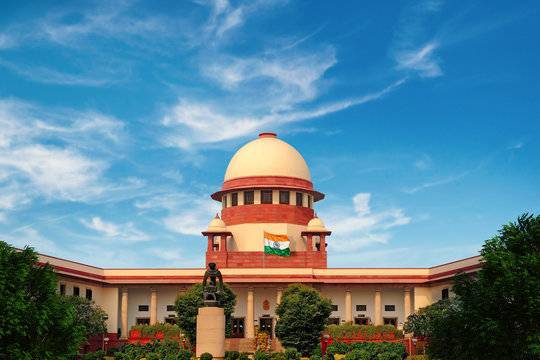
GAG LAWYERS -
GROVER & GROVER ADVOCATES

GAG LAWYERS -
GROVER & GROVER ADVOCATES

Labour Lawyer, Labour and industrial law is a body of law that regulates the relationship between employers, employees, and trade unions. It covers topics such as the minimum wage, hours of work, health and safety, discrimination in the workplace, and collective bargaining. It also covers issues such as trade union recognition, collective agreements, and industrial action. In India, labour and industrial law are regulated by the Industrial Disputes Act, 1947.
It covers various aspects of employment, including wages, working hours, safety regulations, and collective bargaining. It also outlines the rights of workers to form unions and other forms of collective action. Labour and Industrial Law is an important part of India’s legal framework as it provides protection for both employers and employees.
Labour law has two branches: the Industrial Relations Code (IRC) and the Labour Laws. The IRC regulates industrial relations in the private sector, whereas the Labour Laws regulate labour relations in both the public and private sectors. The basic feature of labour law is that it sets out the rights and obligations of an employer-employee relationship. It also provides a structure for collective bargaining between employers and their employees, such as through a trade union or association.
The Industrial Relations Code regulates the conditions of work in the private sector in accordance with Section 2 of the Constitution, which provides that labour relations in the private sector are regulated by law. The Code contains a set of rules, regulations, and directions to be observed by employers and employees.
It is designed to ensure fair treatment for employees and enforce compliance with employment-related rights. The Code is based on the principle of freedom of association, which means that employees and employers have the right to form and join associations in order to protect their interests. The Code protects all forms of associations, including trade unions, employer’s organisations, and other interest groups.

Labour law in India is a complex and ever-changing subject. It is important to understand the various charges, penalties, and punishments that can be imposed on employers under Indian labour laws. This article will provide an overview of the charges, penalties, and punishments imposed by the Indian labour law system in cases of industrial disputes. It will also discuss how these penalties are determined and what steps employers should take to ensure compliance with the applicable laws.
The charges, penalties, and punishments for labour and industrial law cases can vary depending on the specific circumstances of the case. Generally, employers who violate labour laws may be subject to civil penalties, including fines and back wages, and may be required to make restitution to the affected employees. In some cases, employers may be subject to criminal charges. Violations of labour laws may also result in the employer being required to pay civil damages to the employee, such as compensatory and punitive damages.
Additionally, employers may be subject to investigation and enforcement actions from government agencies, including the Department of Labour, and may be subject to civil and criminal prosecution.
An overview of penalties and punishments imposed by the Indian labour law system in cases of industrial disputes Indian labour laws have a number of provisions that can be triggered in the event of an industrial dispute. The Indian Supreme Court’s decision in 1976 to enact the Industrial Disputes Act introduced a number of penalties for non-compliant employers. Let us discuss some of these penalties under the IDDM Act’s
1) Section 72: Section 72 provides for five different types of court orders against an employer when there is an industrial dispute:
2) Section 72(a): an order of interdict against the employer
3) Section 72(b): an order of mandamus ordering the employer to comply with a particular provision
4) Section 72(c): an order of prohibition against the employer from doing something or not doing it.
5) Section 72 also provides orders for other related offences, like threatening or insulting workers. Under Section 180, every penalty under these sections can be increased ten times by a magistrate’s court.
The High Court has jurisdiction over: things that are connected with or incidental to the employment relationship (such as a claim for retaliation, harassment, or discrimination); Certain other claims of employers against employees Class actions and collective agreements Employee claims such as breach of contract and unfair dismissal Orders for injunctions made by the Labour Court Certain other administrative matters.

Labour and industrial law cases in India are governed by the Industrial Disputes Act, 1947. This act outlines the various charges, penalties, and punishments that can be imposed on employers and employees in the event of a dispute. The punishments range from fines to imprisonment, depending on the nature of the offence. It also outlines the procedure for filing a complaint and appealing any decision taken by an employer or employee. The act also provides protection to workers in cases of unfair labour practises such as unjustified termination or discrimination against them due to their religion, caste, or gender.
The Industrial Disputes Act provides for a tribunal to be formed to decide on complaints made against employers and employees. The tribunal can act as an arbitrator or a judge, depending on the nature of the dispute. The tribunal has the power to award compensation and fines, refer cases back to the parties, or order reinstatement.
The Industrial Disputes Act provides for a tribunal to be formed to decide on complaints made against employers and employees. The tribunal can act as an arbitrator or a judge, depending on the nature of the dispute. The tribunal has the power to award compensation and fines, refer cases back to the parties, or order reinstatement.
1) Right to wages: Under the Payment of Wages Act, 1936, workers are entitled to receive their wages in full, on time, and without any deductions.
2) Right to overtime: Every employee is entitled to overtime pay if they work beyond the regular hours of work.
3) Right to bonus: All employees are entitled to receive a bonus if their employer declares it.
4) Right to retrenchment compensation: If an employer terminates an employee’s services without any reasonable cause, the employee is entitled to retrenchment compensation.
5) Right to join trade unions: All workers are allowed to form and join trade unions and associations.
6) Right against unfair labour practises: Workers have the right to be protected against any unfair labour practises such as discrimination, exploitation, and harassment.
7) Right to social security: All employees are entitled to various forms of social security benefits such as provident fund, gratuity, pension, health insurance, etc.
8) Right to work: Every employee has the right to work in a safe and healthy working environment.
9) Right to reasonable notice: All employees are entitled to reasonable notice before termination of employment.
10) Right to fair wages: Employees are entitled to receive wages that are fair and reasonable.

Labour and industrial law are integral parts of India’s legal system. It protects the rights of workers, employers, and other stakeholders in the industry. The role of lawyers in such cases is crucial, as they provide expert advice on how to handle disputes and ensure that all parties involved are treated fairly.
The role of a lawyer in labour and industrial law cases in India is to provide legal advice and representation to employers and employees in matters involving employment contracts, collective bargaining, dispute resolution, and union representation. The lawyer must be knowledgeable about all aspects of Indian labour laws, including the Indian Labour Code, the Minimum Wages Act, the Factories Act, the Industrial Disputes Act, and the Trade Unions Act.
He or she must be able to advise clients on their rights and obligations under the law and provide advice on how to negotiate and settle disputes, as well as how to resolve any outstanding issues.
The lawyer should be able to draught and review contracts, represent clients in court, and represent clients in mediation and arbitration. He or she may even be called upon to provide legal advice to trade unions and government agencies.
Lawyers play a vital role in labour and industrial law cases in India by providing legal advice and representation to both employers and employees. They use their knowledge of the law to advise clients on their rights and obligations, as well as how to resolve disputes through negotiation or litigation. Lawyers also offer assistance with drafting contracts, filing claims, representing clients at hearings, and more.
In addition, they can help protect workers’ rights by advocating for better working conditions and wages. The labour law framework in India is complicated, and it can be difficult to find information on the rights of workers. It’s important to hire a knowledgeable lawyer who understands how the law works because many violations go unnoticed by employers or employees. If you’re unsure about your rights, consulting your employer or an expert will help you avoid a costly mistake.

Labour and industrial law cases have become increasingly common in India. As such, lawyers play an important role in representing and protecting the rights of workers. They are responsible for developing legal strategies to help workers receive fair compensation for their work and ensure that employers comply with labour laws.
Lawyers also provide advice on how to resolve disputes between employers and employees as well as how to protect workers from unfair practices. Furthermore, they can help file lawsuits against companies that violate labour laws or mistreat their employees. With their expertise and experience in this field, lawyers are essential to helping workers get the justice they deserve.
Documents required for filing cases related to labour law are:
1. Details of the parties involved (name, address, contact number, etc.)
2. Details of the employer-employee relationship
3. Evidence such as employment contracts, pay slips, letters, etc.
4. Details of the dispute, including dates and the exact cause of the dispute
5. any other documents that support the case.
6. A copy of the applicable labour laws.
7. a copy of the applicable industrial law.
8. a copy of the applicable rules and regulations.
9. a copy of the applicable rule of procedure.
10. Other relevant documents as suggested by the court or lawyer

Grover & Grover Advocates and Solicitors can help in labour and industrial law in a variety of ways. They can assist employers in understanding their rights and obligations under the applicable labour laws and in negotiating collective agreements with their employees. They can represent employers in tribunals and courts in cases involving the interpretation of labour laws and disputes between employers and employees.
They can also provide advice on the legal implications of proposed changes in labour laws or regulations. Additionally, they can provide advice to employers on how to comply with the applicable labour laws and regulations. Finally, they can provide guidance and assistance to employers in developing and implementing internal policies and procedures related to labour law matters.
Grover & Grover Advocates and Solicitors is a leading law firm in India that specialises in labour and industrial law. With their team of experienced lawyers, they provide comprehensive legal services to employers and employees alike. They offer expertise in various areas of labour and industrial law, such as collective bargaining, dispute resolution, employment contracts, dismissal procedures, and more.
Their services help to ensure that the rights of both employers and employees are protected under Indian labour laws. Additionally, they also provide guidance on compliance with the various statutory regulations applicable to industrial establishments. With their assistance, employers can be sure that their operations are conducted within the ambit of Indian labour laws.
Their law firm has been recognised as a leading player in the field of labour law, with expertise in collective bargaining and dispute resolution. They also have a strong presence at the national level and have represented Indian employers in various proceedings before the National Industrial Tribunal. In addition to their services for workers, Grover & Grover Advocates also provide advice for businesses on labour-related matters such as compliance with statutory regulations. Their lawyers are located all over India, ensuring that employers can reach them easily for assistance no matter where they are based.

Labour and industrial law is a complex and ever-evolving area of law in India. The Supreme Court and High Courts of India have played a crucial role in developing and interpreting the law to ensure that it is fair, just, and equitable. This article will explore some of the most popular cases that have been heard by the Supreme Court and High Courts of India related to labour and industrial law. It will also discuss how these rulings have shaped the legal landscape in India with regards to labour rights.
1) Vineet Kumar Sharma v. State of Haryana and Ors (Supreme Court): The Supreme Court held that the right of the workman to carry on union activities and to move the court for the enforcement of his rights is a fundamental right guaranteed under Article 19(1)(c) of the Constitution of India.
2) K. Srinivasan v. All India Bank Employees Association (Supreme Court): The Supreme Court held that any worker aggrieved by the action of his employer in denying him his right to form a union or in victimising him for forming or joining a union has the right to move the Industrial Tribunal even if the trade union has not been registered under the Trade Union Act, 1926.
3) R.K. Garg v. The Executive Engineer (High Court): The High Court held that the provisions of the Industrial Disputes Act, 1947, are applicable to all matters relating to the employment of workmen in an establishment and are not confined to disputes of workmen with their employer.
4) A.P.S.R.T.C. v. D.V. Satyanarayana (High Court): The High Court held that the employer is under an obligation to pay wages to the dismissed employee, even if the employee has not worked for the entire period of the dismissal.